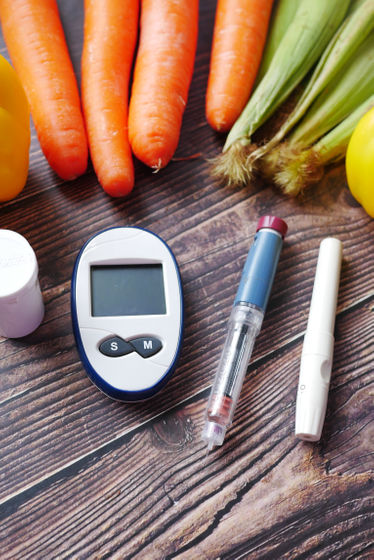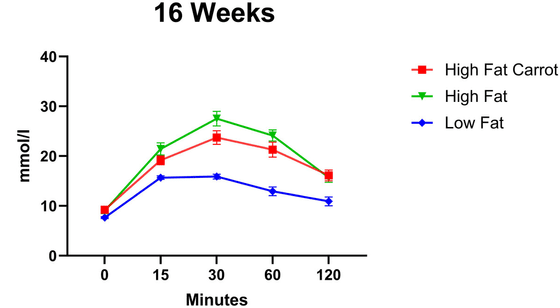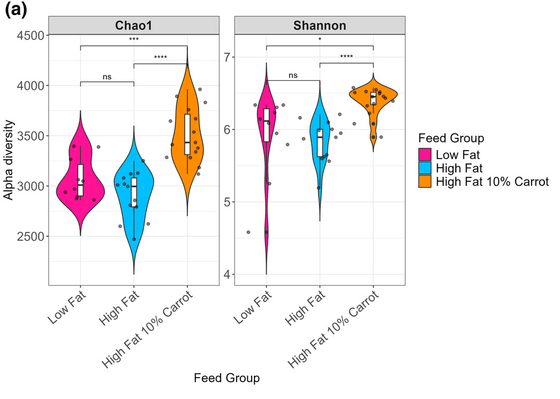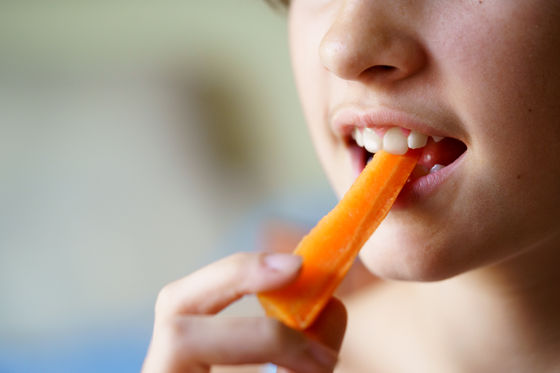Research shows eating carrots helps prevent type 2 diabetes, but what is the best way to eat carrots?

Carrots are a nutritious food, but because they contain a lot of sugar for a vegetable, they are often avoided by people on a carb-restricted diet. A paper was published showing that eating carrots improved blood sugar regulation in mice that had been fed an unhealthy diet.
Effect of carrot intake on glucose tolerance, microbiota, and gene expression in a type 2 diabetes mouse model - Kobaek‐Larsen - 2024 - Clinical and Translational Science - Wiley Online Library
Carrots vs. Diabetes: Surprising New Research Shakes Up Treatment Options
https://scitechdaily.com/carrots-vs-diabetes-surprising-new-research-shakes-up-treatment-options/
Type 2 diabetes is a disease that develops when there is insufficient secretion of insulin, which regulates blood sugar levels, or when insulin becomes less effective due to insulin resistance. Symptoms are controlled with dietary therapy and oral medications such as thiazolidinediones .

A research team from the University of Southern Denmark and the University of Copenhagen focused on previous research showing that physiologically active substances contained in vegetables such as carrots can reproduce the effects of type 2 diabetes treatments without the side effects, and conducted an experiment in which mice were given carrot powder.
The 54 mice used in the experiment were divided into three groups of 18 mice each and fed a high-fat diet, a high-fat diet plus carrot powder, or a low-fat diet for comparison.
The group fed only a high-fat diet and the group fed a high-fat diet mixed with carrot powder were adjusted to have the same total calorie intake.
As a result of the 16-week experiment, it was confirmed that the high-fat diet mice that were given carrots (red line in the figure below) had significantly lower blood glucose levels 30 minutes after glucose administration compared to the high-fat diet mice that were not given carrots (green line). This suggests that the mice that ate carrots had improved bodily functions to control blood sugar levels.

In addition, when the research team collected feces from the mice and analyzed their intestinal bacteria, the mice that consumed carrots (orange in the figure below) had the highest diversity of intestinal bacteria in both indicators.

'Our study shows that eating carrots positively impacts mice with type 2 diabetes by shifting the balance of gut bacteria, which play an important role in digestion and maintaining health, to a healthier state,' said Morten Kobek Larsen, associate professor at the Department of Clinical Research at the University of Southern Denmark.
Carrots contain a variety of nutrients, including beta-carotene and dietary fiber, but the research team is particularly interested in the biologically active substances
These biologically active substances, found in vegetables of the Apiaceae family such as carrots, parsley, celery, and parsnips , are known to have anti-inflammatory, antibacterial, and anti-cancer effects in addition to the anti-diabetic effect observed in this study.
However, the biologically active substances contained in food can be reduced by cooking or processing. The carrot powder given to the mice in this experiment was made by freeze-drying carrots grown organically by local producers.
Co-author Lars Porscher Christensen of the University of Southern Denmark, who is also a lead author of the study, said: 'Even if you cook carrots for a long time, some of the bioactive compounds will remain, but to ensure that as many of these beneficial compounds as possible are retained, raw or lightly cooked carrots appear to be the best option.'

Preliminary research on the effect of carrots on colon cancer suggests that consuming around 30 to 40 grams of raw or lightly cooked carrots daily may have a beneficial effect.
However, these studies, including this one, were conducted on mice, and it has not yet been confirmed whether they can be applied to humans. In addition, since purified falcarinol and falcarindiol were not administered, it is unclear whether these physiologically active substances are actually exerting their effects.
'Our research is based on animal models, so the next step is to conduct clinical trials, which is very expensive,' said Christensen. 'So we're working to secure external funding to conduct small-scale clinical trials using ginseng, which contains relatively high concentrations of bioactive substances. This could pave the way for larger-scale clinical studies, including animal experiments using purified bioactive compounds, which could ultimately lead to the demonstration of ginseng's preventive effects on type 2 diabetes.'
Related Posts:







